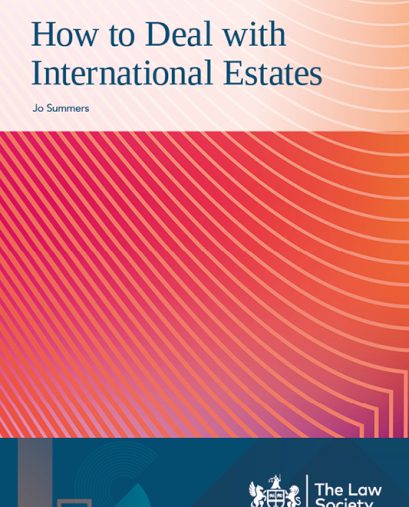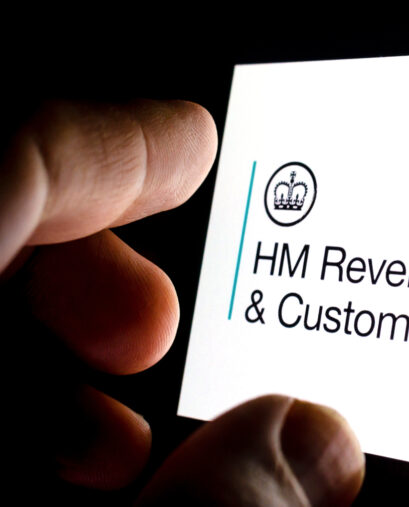HMRC tax focus raises concerns for overburdened court system

In 2023, HM Revenue & Customs (HMRC) saw the average value of its criminal cases rise to £6.2 million, almost three times what is was in 2016 to 2017.
It comes as no surprise then, that they have focused their efforts on civil and criminal investigations about serious fraud, with particular attention paid to mini umbrella companies.
This saw HMRC invest in over 4,000 new compliance officers between 2021 and 2022, enabling it to focus the majority of its litigation efforts throughout 2023, on pursuing cases of what it perceived to be unpaid VAT.
Despite predictions from the Office of National Statistics that litigation involving mini umbrella schemes could decline, it is clear from Tribunal statistics and HMRC’s stance, that they will likely continue to rise as HMRC continues to focus on VAT and perceived fraudulent activities throughout 2024.
However, this raises a number of concerns for the court system. Not only could it put even more pressure on the tax tribunal, it could also lessen the number of cases resolved through ADR and, ultimately, reduce the amount of debt that HMRC can recover.
Helen Cummings, consultant solicitor in the contentious tax team at Jurit LLP, discusses.
Tax Chamber struggles under caseload pressure
The First Tier Tax Tribunal (FTT) is responsible for handling appeals against some decisions made by HMRC.
In 2021, a report from the Tax Law Review Committee (TLRC), revealed a court system already under pressure, with delays between First Tier Tribunal (FTT) hearings and the release of decisions, resulting in dissatisfaction amongst FTT users.
Between 2022 and 2023, HMRC initiated 12,500 civil fraud investigations. This covered a range of cases relating to income tax, PAYE tax, corporation tax, capital gains tax, national insurance contributions, statutory sick pay, statutory maternity pay, inheritance tax, excise and customs duty, as well as VAT.
However, as fewer solutions to tax challenges will now be arranged in-house via alternative dispute resolution (ADR) or by correspondence with HMRC, this is likely to result in even more cases coming before the FTT, adding an additional burden to the court system, as HMRC’s VAT focus continues.
Number of stayed cases will rise
HMRC pursues cases that are likely to be the most problematic for the taxpayer. This tends to result in more complex and lengthy litigation, because the prospects of success for HMRC will be much higher.
However, one unintended consequence of this is an increase in the number of stayed cases before the Tax Tribunal, as the more complex cases are pursued in litigation.
This, in turn, will mean that smaller cases that could have been resolved via ADR will be decided later than they might have been, resulting in a delay in payment of any debt to HMRC.
What does it mean for companies?
The desire of HMRC to continue to focus on pursuing a particular case type, rather than considering other areas, is a very siloed and limiting approach.
It will give taxpayers like mini-umbrella companies and payroll providers food for thought as they enter the new tax year. It is likely that HMRC will focus on tackling fraud in those sectors, so there will be greater likelihood of litigation in connection with companies in those fields.
With this in mind, it is important for businesses to take urgent steps to review their company structure, particularly if they are linked to a payroll provider or mini-umbrella company.
Adapt to survive
Companies operating this model, or in this area, will face greater scrutiny from its customers and HMRC going forward. Not only this, but it will also be more difficult to win work as customers might be less minded to outsource payroll activities given HMRC’s interest in this area.
By adapting and taking professional advice, payroll providers and mini-umbrella scheme operators can avoid potential criticism from HMRC going forward, whilst reassuring their customers.
Meanwhile, it is highly likely that cases will be brought before the FFT as ADR applications continue to be rejected. A large proportion of these may be linked to payroll, recruitment providers and operators of the mini-umbrella models.
Whether it be in litigation, or seeking advice before HMRC finds you, it is important to work with a lawyer with a firm pedigree in advising your sector.
This will ensure that you are better informed about other cases being litigated before the Tribunal that may not have been published yet, and that you receive tailored advice suitable for your industry.
Our contentious tax team specialises in advising organisations representing recruitment and payroll companies, as well as payroll companies themselves, and their directors, at the First Tier Tax Tribunal.
For help and support with your tax liabilities, or to be represented at Tribunal, get in touch.
At Jurit LLP, we provide discrete business and commercial advice to payroll providers linked with business operations to ensure ongoing business growth. We aim to reassure recruitment and payroll providers that it is very possible to continue to trade and grow your business in an increasingly difficult market. For more information, get in touch.
Helen Cummings Consultant Solicitor - Tax Disputes +44 (0) 20 7846 2370 helen.cummings@jurit.comPlease note this paper is intended to provide general information and knowledge about legal developments and topics which may be of interest to readers. It is not a comprehensive analysis of law nor does it provide specific legal advice. Advice on the specific circumstances of a matter should be sought.









